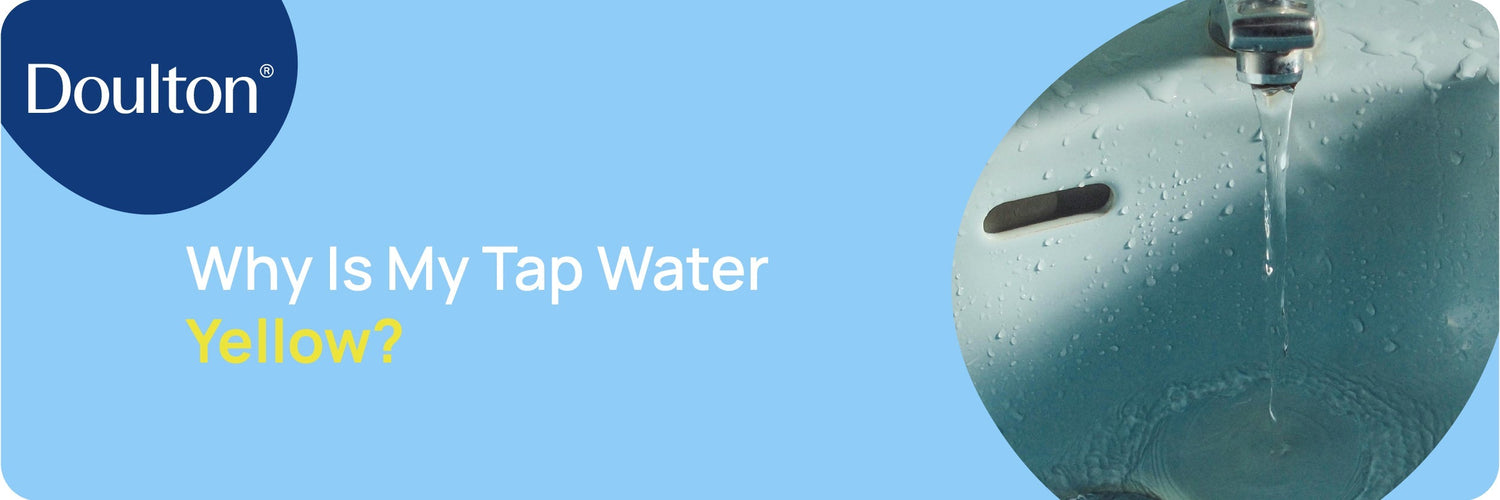Let’s be real—how often do we Malaysians actually think about what’s in our drinking water?
For many of us, the answer is “hardly ever.” As long as it looks clear and doesn't smell funny, it must be fine, right? Unfortunately, that's a dangerous assumption.
The reality is, most of us don't actually know what's flowing through our taps, and that lack of awareness could have long-term effects on our health and well-being. The truth is, water quality issues are far more common in Malaysia than many people realise—and “clear” water doesn't always mean clean water.
Looks Can Be Deceiving: What’s Hiding in Your Water?
Water might look harmless, but a lot of the most dangerous contaminants are invisible to the naked eye. Let’s break down a few of the most common ones found in Malaysian tap water:
1. Microplastics
These are tiny particles of plastic—often smaller than a grain of sand—that come from broken-down plastic bottles, food packaging, or even synthetic fabrics. They're small enough to slip through traditional water treatment systems, and recent studies have found microplastics in tap water all over the world—including Malaysia.
The long-term health effects of ingesting microplastics are still being researched, but early evidence suggests they can cause inflammation, disrupt hormones, and possibly carry toxic chemicals into our bodies.
2. Heavy Metals (Like Lead, Arsenic, and Mercury)
Heavy metals can leach into water from corroding pipes, industrial waste, or contaminated soil. Once they’re in your system, they don’t just pass through—they accumulate.
-
Lead exposure is linked to developmental issues in children and can affect kidney function and blood pressure in adults.
-
Arsenic, commonly found in some underground water sources, has been associated with cancer and skin lesions.
-
Mercury affects the nervous system and can be particularly dangerous for pregnant women and young children.
Even low levels of these metals in your drinking water over a long period can have serious consequences.
3. Chlorine and Disinfection By-products
Water treatment plants often use chlorine to kill off harmful bacteria and pathogens in water. While effective, chlorine doesn't disappear once the water reaches your home.
Prolonged exposure to chlorinated water, especially when it reacts with natural organic matter in the water, can lead to the formation of disinfection by-products (DBPs) like trihalomethanes (THMs), which have been linked to cancer and reproductive problems.
4. Bacteria and Viruses
Although municipal water is treated to remove pathogens, problems can arise when there's a disruption—like pipe leaks, burst mains, or flooding. These events can allow bacteria such as E. coli or coliforms to enter the water supply.
And let’s not forget the rural areas or residential developments with older or less reliable piping systems—these communities are particularly vulnerable to microbial contamination.
5. Pesticide Residue
Malaysia’s agricultural sector is a major contributor to the economy—but unfortunately, it’s also a source of water contamination. Pesticides and fertilizers used on farms can seep into rivers and groundwater supplies.
These chemicals often contain compounds that have been linked to endocrine disruption, developmental issues, and even certain types of cancer. Standard municipal filtration may not fully remove them from your water supply.
“I Boil My Water—Isn’t That Enough?”
This is a common belief among many Malaysians. Boiling does help in some ways—it can kill most bacteria and viruses. However, it doesn’t remove chemical contaminants, microplastics, or heavy metals. In fact, boiling may actually concentrate these substances because the water evaporates, but the contaminants remain behind.
So while boiling is better than nothing, it’s far from a complete solution.
So, What Can You Do About It?
The good news? You don’t have to panic—but you do need to take proactive steps.
Invest in a Quality Water Filtration System
Not all filters are created equal. Some only improve taste or remove chlorine, but don’t filter out the more dangerous contaminants. Doulton’s ceramic filters are built to go the extra mile:
-
Removes microplastics
-
Reduces heavy metals like lead and mercury
-
Filters out bacteria and cysts
-
Minimises chlorine and chemical by-products
-
Preserves essential minerals your body actually needs
With more than 185 years of expertise in water purification, Doulton combines traditional British engineering with modern filtration science to offer Malaysians a reliable way to take control of their water quality.
Know What You’re Drinking—It’s Your Right
Water is essential to life. You cook with it. You drink it daily. You give it to your kids. And yet, most of us are completely unaware of what’s actually inside our glass.
If you’re not sure what’s in your water, it’s time to stop guessing. Get educated. Get equipped. And most importantly—get protected.




